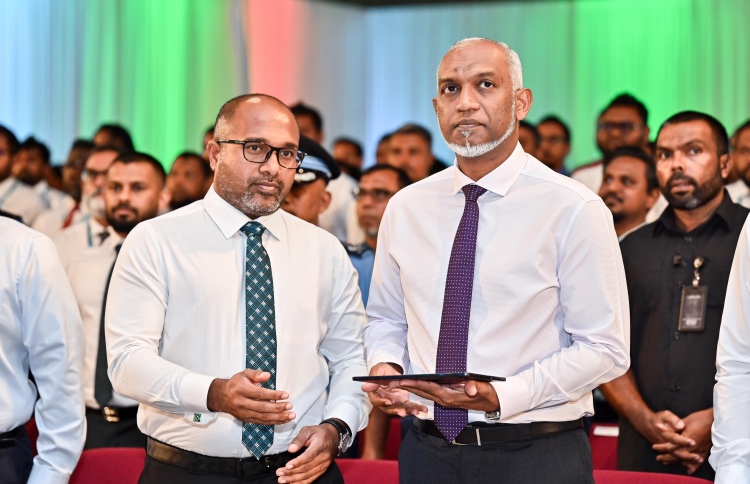The procedure for carrying out the death penalty is currently outlined in a regulation, and related provisions will be incorporated into law before implementation begins, Homeland Security Minister Ali Ihusan said today.
President Dr Mohamed Muizzu yesterday announced plans to amend the Drugs Act, proposing capital punishment for individuals convicted of smuggling or trafficking narcotics. The announcement has reignited public debate, particularly over the longstanding issue of capital punishment not being enforced in murder cases—raising doubts over whether harsher penalties will deter drug-related crimes.
Speaking to Mihaaru News, Minister Ihusan said that while procedures for the death penalty already exist, the government is working to incorporate them within the law.
“The procedure is now in a regulation. But the government does not want to implement the death penalty under a regulation,” he said.
“It will be included in the law. God willing this [death penalty implementation during this term] is our target.”
Under current Maldivian law, the punishment for drug trafficking is life imprisonment and a fine ranging from MVR 100,000 to MVR 10 million. The death penalty is only permitted in cases of intentional homicide. Although several inmates remain on death row, Maldives has not carried out an execution since 1953, maintaining an effective moratorium.
Minister Ihusan noted that a joint task force is working to combat the nation’s drug crisis and cited examples from other countries where the death penalty has been used to deter drug trafficking effectively.
“This cannot be stopped unless we punish the traffickers severely,” he said.
“The death penalty for those taken from supply-side operations will be a permanent solution.”
During the previous administration of President Abdulla Yameen, a regulation outlining the implementation of the death penalty was passed, though no executions took place under that framework.
